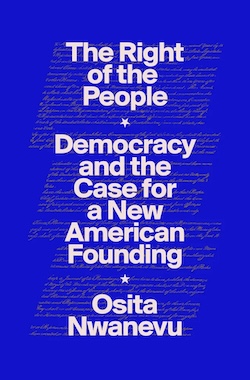Why Is Everything So Expensive?
August 22, 2025
Hint: Concentrated corporate power has a lot to do with it.
The Roosevelt Rundown features our top stories of the week.

The Consumer Price Index continues to show price increases in basic items such as groceries. (Spencer Platt/Getty Images)
How to Bring Down the Cost of Living
From groceries to housing, basic necessities are becoming increasingly unaffordable for all Americans. As Roosevelt’s experts have explored, there’s a common culprit: corporate concentration, enabled by a lack of antitrust enforcement, resulting in stagnant wages and a lack of worker power.
Confronting the cost-of-living crisis will require multiple interventions to reshape warped markets, as the Roosevelt Institute summarizes in a new fact sheet:
- Introducing a universal public option for childcare
- Cracking down on exploitative pricing, including negotiating caps on basic grocery prices
- Empowering labor through sectoral bargaining and industrial policy
- Stabilizing energy prices with public reserves
- Providing universal health care, including forgiving medical debt
Tweaks around the edges will never come close to addressing the affordability crisis. Now is the time for bold, creative ideas for reshaping our economy to serve the public good.
Read the fact sheet: “Confronting the Cost-of-Living Crisis”
And check out these conversations with Roosevelt experts from the past week: Program Manager Lena Bilik joined Public News Service to discuss expensive childcare. Health Care Fellow Miranda Yaver spoke with The Lever about skyrocketing health insurance rates.
What We’re Talking About 
What We’re Reading
- On democracy: Roosevelt Fellow Osita Nwanevu sat down with The Baffler to discuss his new book The Right of the People: Democracy and the Case for a New American Founding and how to restore Americans’ faith in democracy.
- In case you missed it: Nwanevu also joined Roosevelt’s Lena Bilik for a book club discussion on these topics.
- On taxing the rich: On Marketplace, Senior Fellow Beverly Moran explained the constitutional hurdles to implementing a national wealth tax: A clause originally intended to insulate slaveholders now insulates billionaires.
- On the Federal Reserve: The Fed’s annual Jackson Hole symposium kicked off yesterday, with climate-driven risks notably missing from the agenda. This is a grave mistake, according to Senior Fellow Sarah Bloom Raskin, who noted to Wyoming Public Radio that “extreme heat alone is costing the US economy approximately $100 billion per year in labor productivity impacts.”
